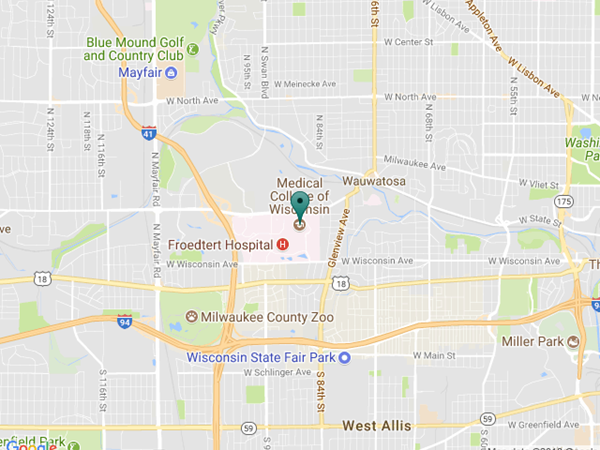Medical College of Wisconsin Advanced Heart Failure and Transplant Cardiology Fellowship
The Comprehensive Heart Failure and Transplantation Program was established over 30 years ago. The current physician team consists of six board certified Advanced Heart Failure and Transplant Cardiologists, three VAD/Transplant Cardiac Surgeons, six Heart Transplant and MCS Coordinators, six Advanced Practice Heart Failure Nurse Practitioners and a large multidisciplinary team. Based on current and projected annual growth volumes, we will exceed 25 cardiac transplants and 20 mechanical circulatory support devices this year.
Froedtert Hospital and the Medical College of Wisconsin is one of only two academic medical centers in Wisconsin, and the only academic medical center in Milwaukee and eastern Wisconsin. With 516 beds and the regions only level 1 trauma center, Froedtert Hospital exceeds 26,000 admissions/year and serves as a referral center for eastern Wisconsin as well as portions of northern Illinois and Indiana, and the Upper Peninsula of Michigan.
Applicants
The Advanced Heart Failure and Transplant Cardiology Fellowship at the Medical College of Wisconsin participates in ERAS, which opens July 1.
General Curriculum
Program Leadership
Program Director
Renee Kursel-O’Brien, MD
Director of Quality – Cardiac Transplantation Program
Program Director, Advanced Heart Failure & Transplant Cardiology Fellowship Program
Advanced Heart Failure and Cardiac Transplant Medicine
Medical College of Wisconsin and Froedtert Health
Program Manager
Robin Karst, C-TAGME
Program Manager II – Fellowship Programs
Medical College of Wisconsin
Department of Medicine-Educational Programs
rkarst@mcw.edu
Contact Us
Cardiovascular Medicine
MCW - The Hub for Collaborative Medicine
8701 Watertown Plank Rd., 5th Floor
Milwaukee, WI 53226
Administrative Office
(414) 955-6777
(414) 955-0069 (fax)


